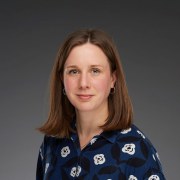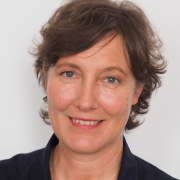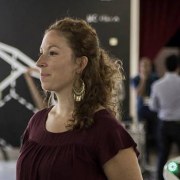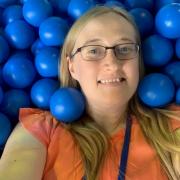Engaging visitors from 'all walks of life': who, why and what's the benefit?
Find this session's presentations here.
Our visitors bring life into our science centres and museums. Many organisations are working to diversify their audience through inclusive programming and ways of working. How do we decide who we should work with? What is the benefit of encouraging people from ‘all walks of life’ to visit?
This panel session will look at how and why we choose the audience groups we want to work with and what methods we can use to measure the ‘mutual benefits’ that such work can have, on both the communities we work with and the institution itself.
A range of examples will be presented, involving visitors with autism ; migrant and refugee communities ; visitors from BAME communities ;clinicians and patients from a psychiatric hospital. Presentations will focus on why our institutions are targeting these communities, evaluation methods used to assess the impact and benefits of working with these underrepresented groups and discussion around emerging research findings from each project.
Facilitator
Senior Audience Advocate (Learning)
Session speakers
Audience Research Manager
As part of the development of it’s new Medicine Galleries, the Science Museum in London has begun developing partnerships with community groups with the hope of engaging a more diverse audience with this project. Lauren will talk about why the project team has chosen to work with particular community partners and what they hope the ‘mutual benefits’ of this work will be. She will also discuss the methods being use to evaluate the impact and success of this work so far
Based on the pop-up project knowledge°room at the Austrian ScienceCenter-Network, which addresses diverse audiences in underserved areas in Vienna, we will discuss the issue of the social impact on the audiences involved. What do we really know about it? How can we analyse the social impact of science activities at all, and why should we care at all?
Department for Education and Scientific Culture - Director
As part of the development of a new exhibition on mental health at the Pavilion of Knowledge - Ciência Viva, in Lisbon, the museum started to work with a group of clinicians and patients from a local psychiatric hospital, who were also involved as actors in the development of a programme of activities aimed for schools and general audiences. This presentation will address the benefits and challenges of this process and the general impact in the group of patients, visitors and museum staff.
Senior Manager for Audience Research and Insight
The Victoria and Albert Museum
Dinosaurs is a free event that lets children on the autistic spectrum enjoy the Museum with their families and siblings, free from the hustle and bustle of the general public. This session will look at why the Natural History Museum, London works with this audience and how the museum evaluates these events. What are the challenges and opportunities of working with and evaluating this programme? What have we found out from working with this audience?





